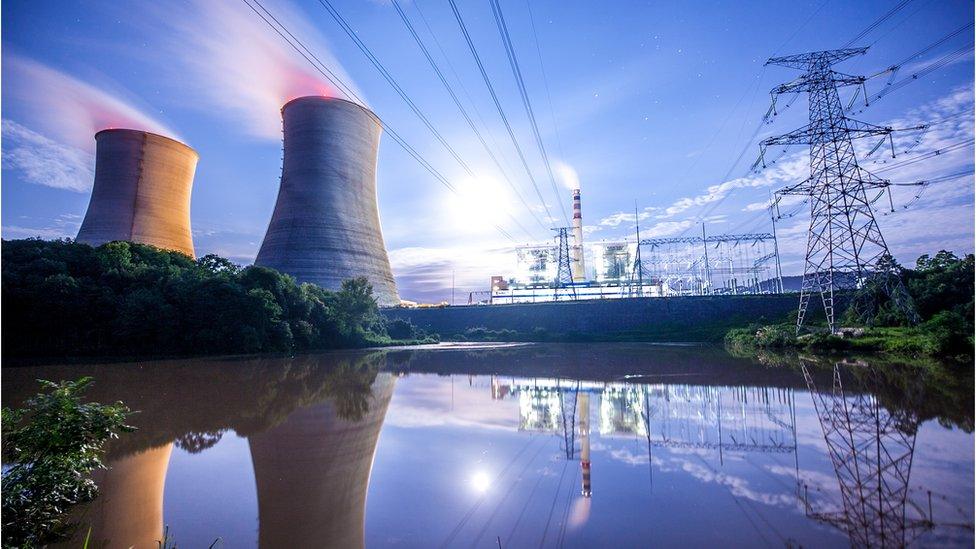E.On to raise gas and electricity prices in April
- Published

Big six energy provider E.On has said it will increase its dual fuel standard variable tariffs by 8.8% from next month.
Electricity prices will rise by an average of 13.8%, and gas prices by 3.8%.
E.On said that 2.5 million customers would be affected by the increases, which come into effect on 26 April.
The average bill will rise by £97 a year. However it is the first such increase in three years.
E.On blamed the social and environmental schemes which support renewable energy, but which customers have to pay for through their bills.
Wholesale had actually come down, it said, thanks to its hedging policy.
But the announcement was criticised by some energy bill experts.
"E.On delivered yet another bitter blow to households this morning as it announced a monstrous price rise," said Mark Todd the founder of Energyhelpline.
"This massive increase will be very tough for customers to swallow and once again it's loyal standard rate customers who are hit the hardest."
Three million letters
Three other big power companies have announced price rises this year, while British Gas has announced a freeze until August.
Scottish Power's standard electricity prices will increase by an average of 10.8% and gas prices by 4.7% on 31 March.
Npower is raising its standard tariff electricity prices by 15% from 16 March, and gas prices by 4.8%
EDF Energy cut its gas prices by 5.2% in January, but its electricity prices rose by 8.4% on 1 March
British Gas is freezing its gas and electricity prices until August
E.On said it would send more than three million letters this month to its customers, making it clear that cheaper tariffs are available.
In addition, some vulnerable customers - including those over 65 - will be offered special deals.
They will receive letters with a tear-off permission slip, which will enable them to switch to E.On's cheapest tariff before the price rises come into effect.
Standard tariffs have come under criticism from MPs and the government, as they are more expensive than fixed-term deals.
The regulator has also put pressure on energy suppliers to get more of their customers to switch to cheaper deals.
At the moment about two-thirds of customers are on standard tariffs.